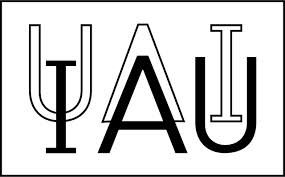Sub-Group Name
IAU Sub-Working Group for the Deaf and the Hearing Impaired
Sub-Group Description
The mission of the International Astronomical Union is to promote and safe-guard astronomy in all its aspects through international cooperation. Persons who have a hearing impairment and that either define themselves as deaf and users of sign language, or not, are documented to be negatively impacted by disabilities in their astronomy and science education. Consequently, they are restricted in their professional careers and from their potentially valuable contributions to the field. Promoting astronomy to this audience who presently is at a disadvantage is thus at the heart of IAU’s mission.
Professionals and amateurs around the world passionately work to make astronomy accessible for the deaf and hearing impaired. However, their experiences need to be communicated and best practices need to be agreed upon. An international community for the education of the deaf and hearing impaired exists, but such a community for promoting and disseminating astronomy to the deaf and hearing impaired is less established. An untapped potential for a synergy between those two communities exist.
The work of the IAU Sub-Working Group for the Deaf and the Hearing Impaired will hopefully pave way for wonderful discoveries in our field. By enabling persons that otherwise might have been barred from the field, we may see repetitions of the historical successes of deaf and hearing impaired astronomers such as Goodricke, Hassel, Cannon, Leavitt and Aitken, to name a few.
Sub-Group Goals
The overarching goal is to embody IAU’s mission statement by providing equal access to astronomy for the deaf and hearing impaired.
- Work targeted at identifying and resolving the barriers that make astronomy less accessible for the deaf and the hearing impaired throughout life in close cooperation with the other sub-working groups.
- Create and foster a community consisting of the deaf and hearing impaired astronomers, professionals, and those that are interested in working to realize the overarching goal.
- Create channels where this community can disseminate and discuss best practices, success stories, and unresolved challenges.
- Gather this community virtually on a regular basis to identify the present status and to stake out the way forward. This can imply identifying urgent research questions that have to be answered and practices that need to be communicated. Aspiring astronomers would also benefit from having this venue where they can meet potential role models.
- Support existing initiatives and seek to collaborate with other forums for the hearing impaired and the deaf, such as the World Federation of the Deaf and its members, the International Federation of Hard of Hearing People, and with leading experts at research and educational institutions.
- Continually document the process, progress and lessons learned to prevent future fallbacks.
